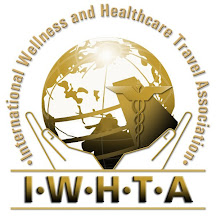Mr. Naresh Jadeja, President of IWHTA was invited to make presentation on ‘Developing long term strategies to make Gujarat – “A Medical Tourism Destination-Opportunities and Constraints’- at Gujarat
Tourism Conclave in Ahmedabad, India.
Tourism Corporation of Gujarat Ltd (TCGL) along with FICCI (Federation of Indian Chambers of Commerce and Industry) organized Gujarat Tourism Conclave, with special emphasis on Health and Wellness Tourism in Ahmedabad on 24th June, 2010. The focus of the conclave was to exclusively capitalize on tourism opportunity, air connectivity and Health and Wellness Tourism in Gujarat through interaction with the travel trade fraternity and leaders of the sector from all over the country. Feedback was sought from the participants - industry leaders - on how to market the state competitive.
“Gujarat has many opportunities and at the same time having many obstacles in becoming a healthcare destination. It is great to know that Gujarat government is very active in promoting different industries through its support and efforts. I certainly appreciate Mr. Narendra Modi and Mr. Jaynarayan Vyas’s
commitment and vision to develop medical tourism in state at the perfect time”, said Mr. Naresh Jadeja.
Health and Tourism Minister Mr. Jaynarayan Vyas officially inaugurated the conclave and gave a very passionate presentation on Achievements and opportunities in Gujarat. He clearly said that developing tourism in Gujarat was not priority until now, but after achieving leadership in industry, agriculture and infrastructure now is the right time to focus on developing tourism in Gujarat and brand new airport of Gujarat will give a great boost. He promised that within next 3 years gujarat will become a medical tourism destination.
 Mr. Naresh Jadeja presented on opportunities and constraints and compared gujarat healthcare industry with neighbouring countries. Mr. Naresh Jadeja said, “I presented IWHTA’s research and analysis for developing medical tourism in Gujarat and it will surely help industry leaders and policy makers to start planning for the next 5 years. This presentation was the result of our personnel visit to 100+ hospitals outside India and its comparison at different level with healthcare facilities in Gujarat. International patient’s requirements were evaluated against limitations and advantages of healthcare industry in Gujarat”.
Mr. Naresh Jadeja presented on opportunities and constraints and compared gujarat healthcare industry with neighbouring countries. Mr. Naresh Jadeja said, “I presented IWHTA’s research and analysis for developing medical tourism in Gujarat and it will surely help industry leaders and policy makers to start planning for the next 5 years. This presentation was the result of our personnel visit to 100+ hospitals outside India and its comparison at different level with healthcare facilities in Gujarat. International patient’s requirements were evaluated against limitations and advantages of healthcare industry in Gujarat”.  Heathcare industry leaders in Gujarat wanted state government to take active part in promoting Gujarat as Healthcare destination. IWHTA president wanted to schedule a meeting with Health and Tourism Minister Mr. Jaynaran Vyas to suggest plan for developing medical tourism in Gujarat. IWHTA is planning to host one mega medical tourism event this year and leaders of medical tourism industry from around the world are supporting its efforts. This event will change the dynamics of Indian Healthcare Travel industry and aims to educate and train its executives with the best people in this field.
Heathcare industry leaders in Gujarat wanted state government to take active part in promoting Gujarat as Healthcare destination. IWHTA president wanted to schedule a meeting with Health and Tourism Minister Mr. Jaynaran Vyas to suggest plan for developing medical tourism in Gujarat. IWHTA is planning to host one mega medical tourism event this year and leaders of medical tourism industry from around the world are supporting its efforts. This event will change the dynamics of Indian Healthcare Travel industry and aims to educate and train its executives with the best people in this field.










